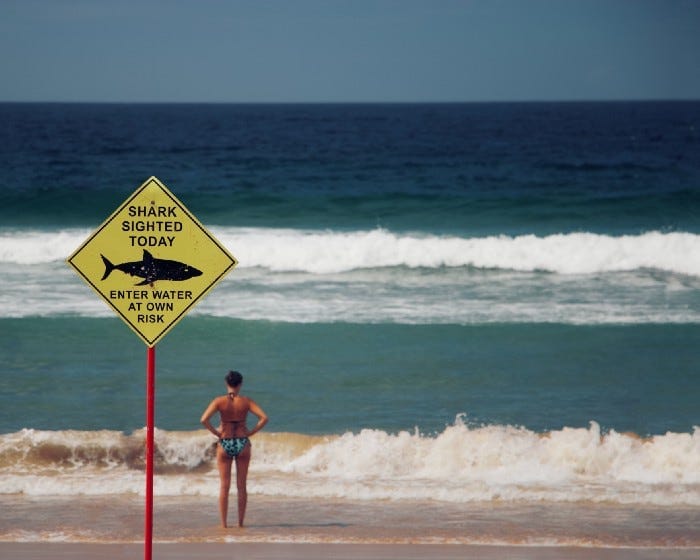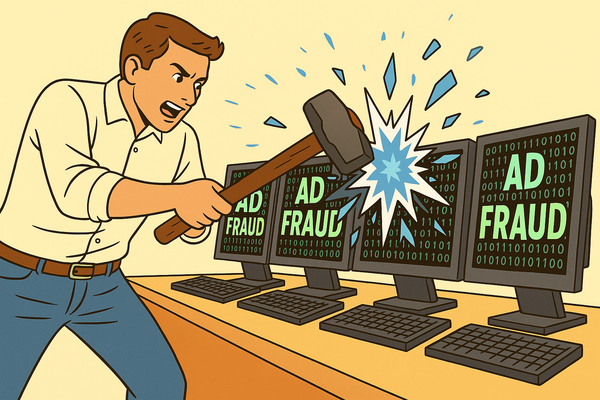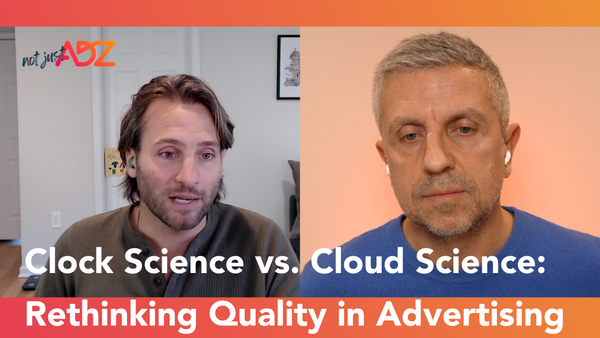Short-Termism Can Do Great Damage During A Pandemic | AdExchanger
Many first incorrectly considered COVID-19 to be a “China issue,” then it became an “Asia issue.” Now it’s a humankind issue.

Many first incorrectly considered COVID-19 to be a “China issue,” then it became an “Asia issue.” Now it’s a humankind issue.
Humanity, locked down in homes or not, is coping with a very high level of uncertainty, stress, fear and even panic.
Two instinctive reactions in such a scenario are to get as much information and guidance as possible and to turn to the reassurance of safe reference points: family, friends, institutions and trusted consumer and media brands.
Many consumer brands have emailed customers to reassure them about the health and well-being of their staff and clients in physical stores. They adapted their social media messages — not without hiccups here and there — and developed deeper concepts, encouraged social distancing, creatively fine-tuned their usual content and generated entertaining ideas for people stuck at home.
News media owners are playing their role of valued and trusted information source on different fronts, touching different areas: from breaking news to scientific explanations, medical guidance, logistics tips and tutorials to support for mental well-being for people in isolation. Meanwhile, misinformation and disinformation run freely in social media until platforms, some for the first time, step up their efforts to curb false information across their networks.
Many news publishers with paywalls have responsibly made coronavirus-related content free to benefit their communities, and the spike in traffic and subscriptions are once again proof of the role of quality media in our societies.
Then comes advertising.
Campaigns and budgets already planned and committed to have been put on hold, delivering a blow to media owners right when humanity most needs them at the top of their game and resources. Worse, most brands and agencies still running campaigns are blacklisting all coronavirus-related content. That has led to empty ad slots filled with “cloud ads” popping up, including on the homepage of The New York Times.
Hypocritically, many brands telling us in emails how much they care for people’s well-being, reassuring us on social media that they are by our sides during lockdowns, are shying away from content that “saves lives,” as IAB President David Cohen puts it.
Directly related to content and advertising budgets is the financial stability of media owners to ensure “that credible news organizations can afford the staff required to provide critically vital information. It ensures that reckless disinformation efforts will be blunted by news that is accurate, fact-checked and reliable. It ensures that the public at large — the people who buy [advertisers’] products — stay alive and well,” Cohen said.
Many advertisers prefer to appear beside silly polls, click-bait stories or other cheap ads instead of marketing their products in quality media environments, which today happen to be filled with coronavirus stories. That approach ignores the fact that coronavirus is part of our lives today, and audiences — their customers — are smart enough to disconnect the brand from the virus.
Consultant Mark Ritson perfectly put it this way in a recent piece: “As the coronavirus crisis deepens — and we should remember this is only the very start — we will see more examples of brands that remembered their values in the face of gigantic pressure; and of those that pressed the exit button and left customers, employees and the broader public to their own devices. Customers […] have long memories.”
Seeing media owners as innocent victims here, however, would be a misrepresentation. Many of their advertising executives have track records of sticking to the programmatic open marketplace, which undermines their quality, reputation and long-term sustainability. Some play the victim of keyword blacklisting, which is one of many downsides of the real-time bidding (RTB) ecosystem.
RTB and a short-term focus on monetization are the root problems and have done more damage to media owners’ advertising revenues than keyword blacklisting, an acknowledged and necessary practice in the programmatic open marketplace.
It is also confirmation of how disconnected digital advertising and marketing teams can be from their companies’ core values, purposes and audiences.
Brands and media owners should use this emergency, of a scale not seen since WWII, as an opportunity to reassess their assumptions, dynamics and approach to digital advertising and marketing for the benefit of society and our economies.
Humanity needs a trustworthy, independent, solid and self-sustaining news media category. And so does everybody in the advertising ecosystem, no matter what side they work for.
If media content about coronavirus “saves lives,” the failure to support it should leave a stain on our professional credibility and consciences.
Originally published at https://www.adexchanger.com on March 27, 2020.





